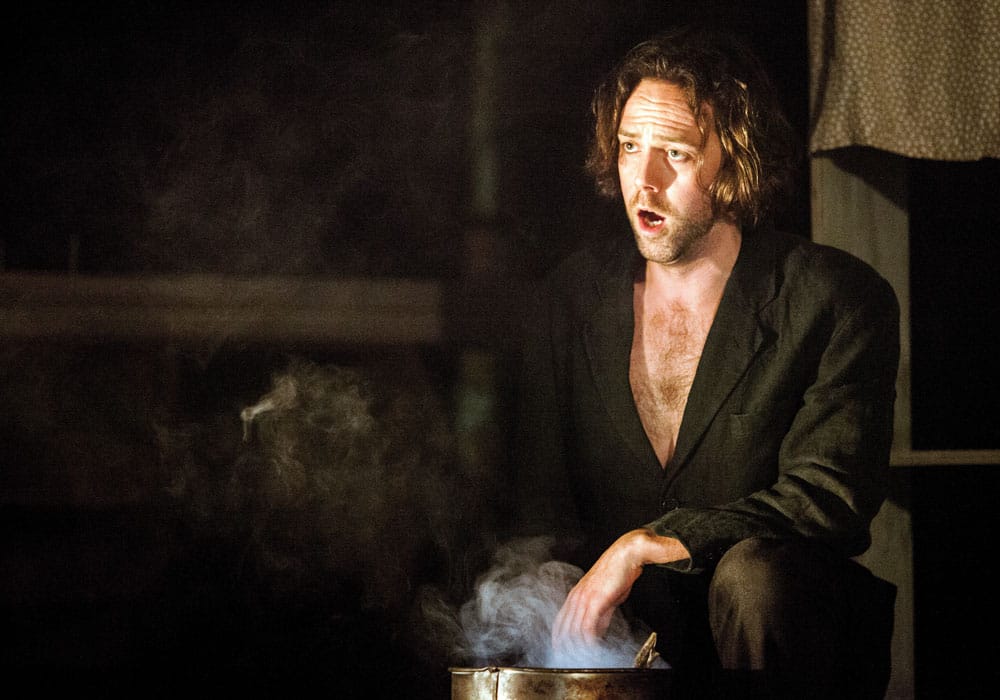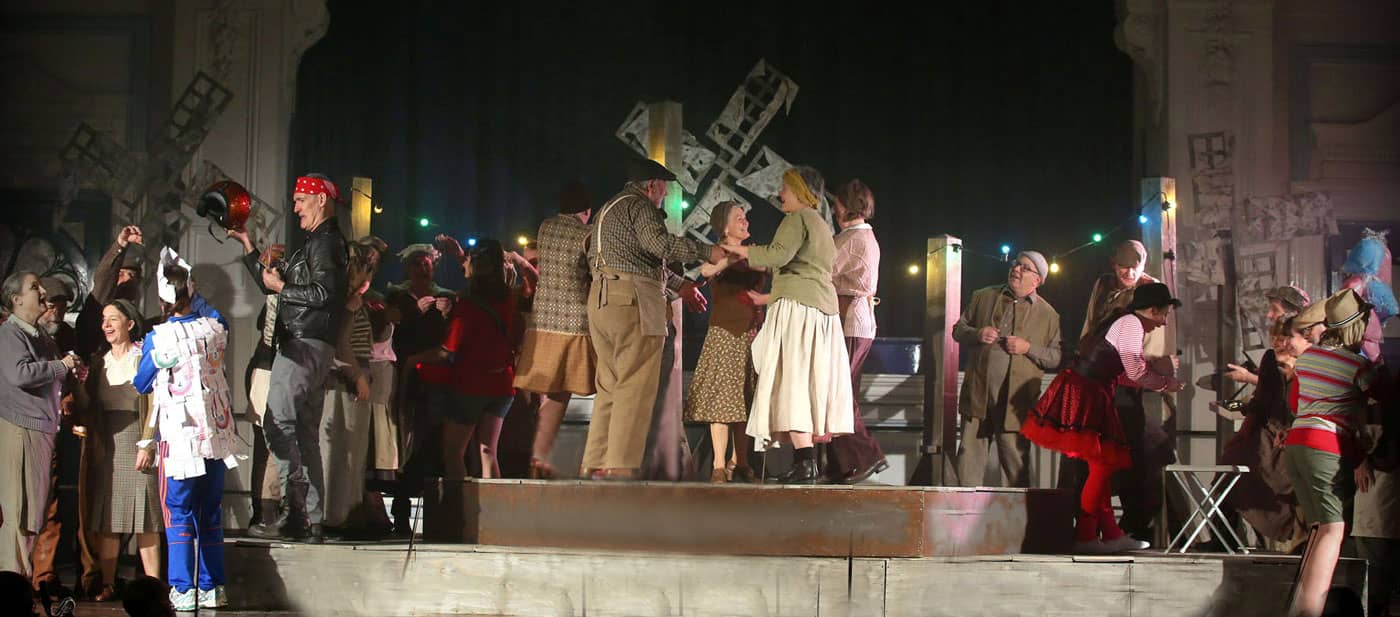A Village Romeo and Juliet
**** “A brave attempt to bring Delius’ problematic but intriguing opera to stage life” Planet Hugill
***** “STUNNING”
Robert Thicknesse – Opera Now
“Delius’s lyricism at its most intense. The endearing Luke Sinclair makes a healthy sound as Sali-
Rupert Christiansen –
“An admirably ambitious production”.
Opera Today
“A distinguished performance, starting out with a blustery, purposeful manner, and unfolding each scene with considerable sweep and brio.”
Classical Source
“The chorus were numerous and very impressive – clear diction and power enabled many details to be heard that are normally hard to make out. The orchestra gave a very polished performance, the sound was balanced and Lee Reynolds, who conducted with great verve, evinced a real passion for the music”.
Delius Society Journal
Frederick Delius
Opera in six tableaux
Libretto by the composer
based on the short story
Romeo und Juliet auf dem Dorfe
by Gottfried Keller
Spring 2017
March 22: Lewes Town Hall,
March 26: E M Forster Theatre Tonbridge,
March 28: Cadogan Hall London,
March 31: Stag Theatre Sevenoaks,
April 2: Devonshire Park Theatre, Eastbourne
NSO Chorus
Kantanti Ensemble
conductor Lee Reynolds
director Susannah Waters
designer Anna Driftmier
lighting designer Jai Morjaria
Production supported by The Delius Trust
Manz Robert Gildon
Marti Geoffrey Moses
Young Sali Alex Edwards
Young Vrenchen Nell Parry
Sali Luke Sinclair
Vrenchen Kirsty Taylor-
The Dark Fiddler Ian Beadle
Wild Girl Georgia Cudby
Sweets Vendor Kate Slaymaker
Lottery Ticket Seller Eva Rustige
Cheap Jewellery Woman Nancy Gillio-
Showgirl Carole Britten
Motorbike Man Richard Fisher
Gun Man Tim Locke
First Woman Rachel Rogers
First Man Jonathan Statter
Second Woman Katy Tutton
Third Woman Fiona Wilson
First Bargeman Robert Gildon
Second Bargeman Geoffrey Moses
Photographs
Robert Knights / Robert Piwko / David James
Footnotes
This, Delius’ greatest opera, had not been performed professionally since 1962, due in a large part to the scoring for an orchestra of 110 players. Lewes-based conductor Lee Reynolds rescored it for 24 musicians of his Kantanti Ensemble. Susannah Waters returned to NSO as director, and she and American designer Anna Driftmier created a dark pre-war world of rural poverty, where the two central characters – played by Luke Sinclair and Kirsty Taylor-Stokes – were constantly at odds with the community around them.
The chorus were employed in almost every scene – operating windmills, planting flowers, working the soil, wandering around at still of night, appearing in the dream sequence as a wedding congregation and effecting complicated scene changes. The drab browns and greys of the chorus costumes were suddenly contrasted during the lively fair scene, where step-out chorus members appeared as garishly dressed vendors.
For the first time NSO’s rehearsals were in Glyndebourne’s Ebert Room.
























